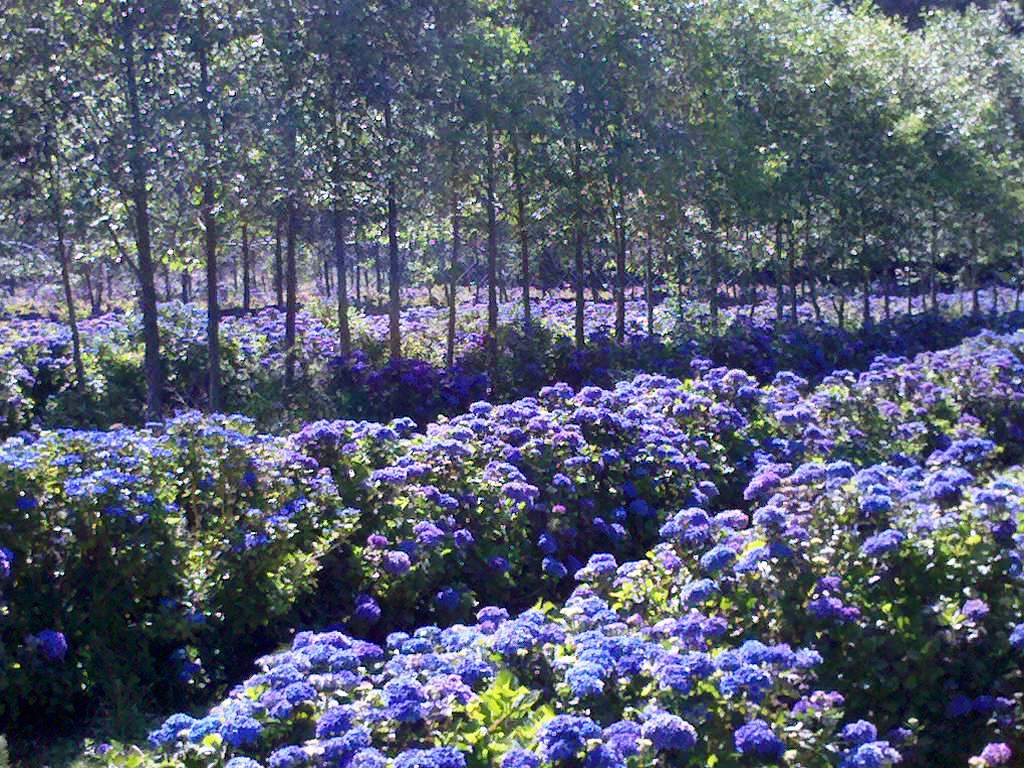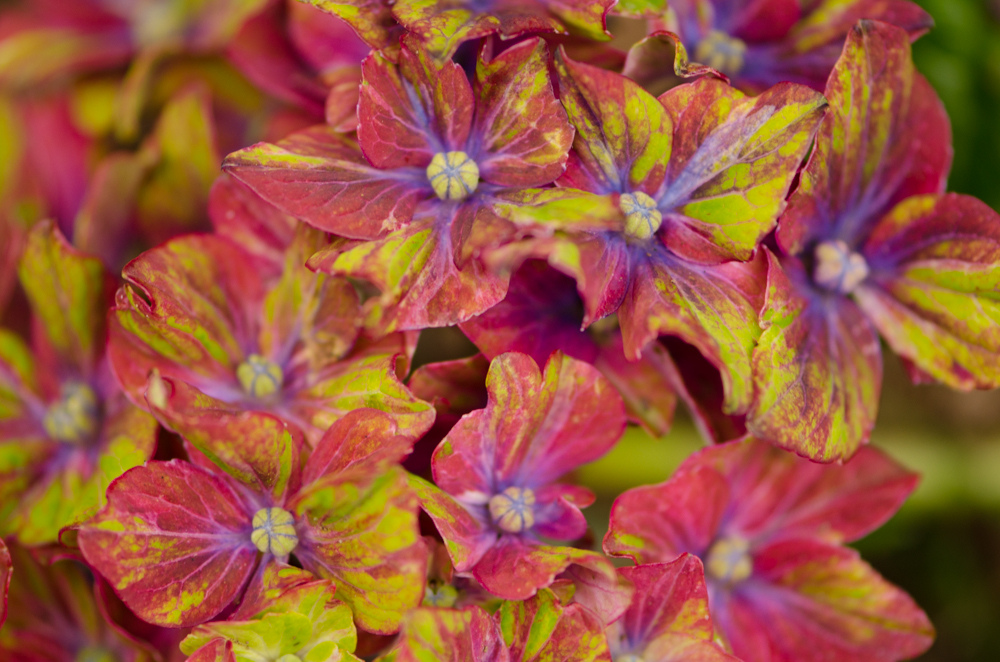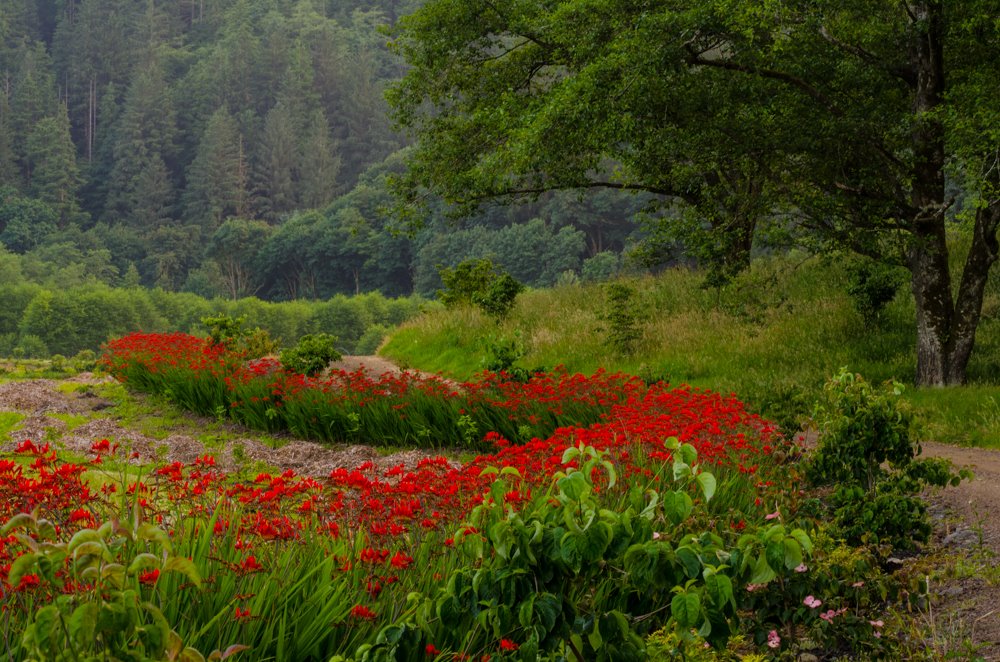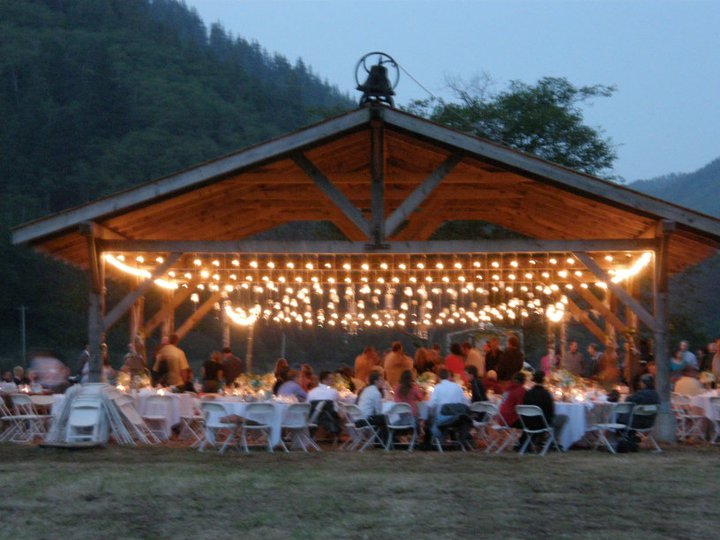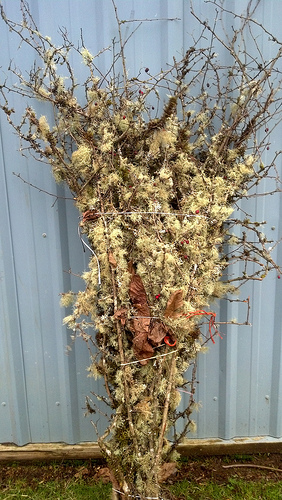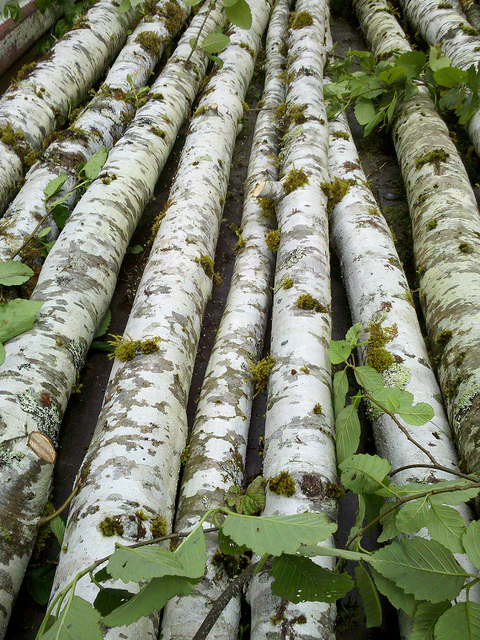Podcast: Play in new window | Download
Subscribe: Apple Podcasts | Podcast Index | RSS | More
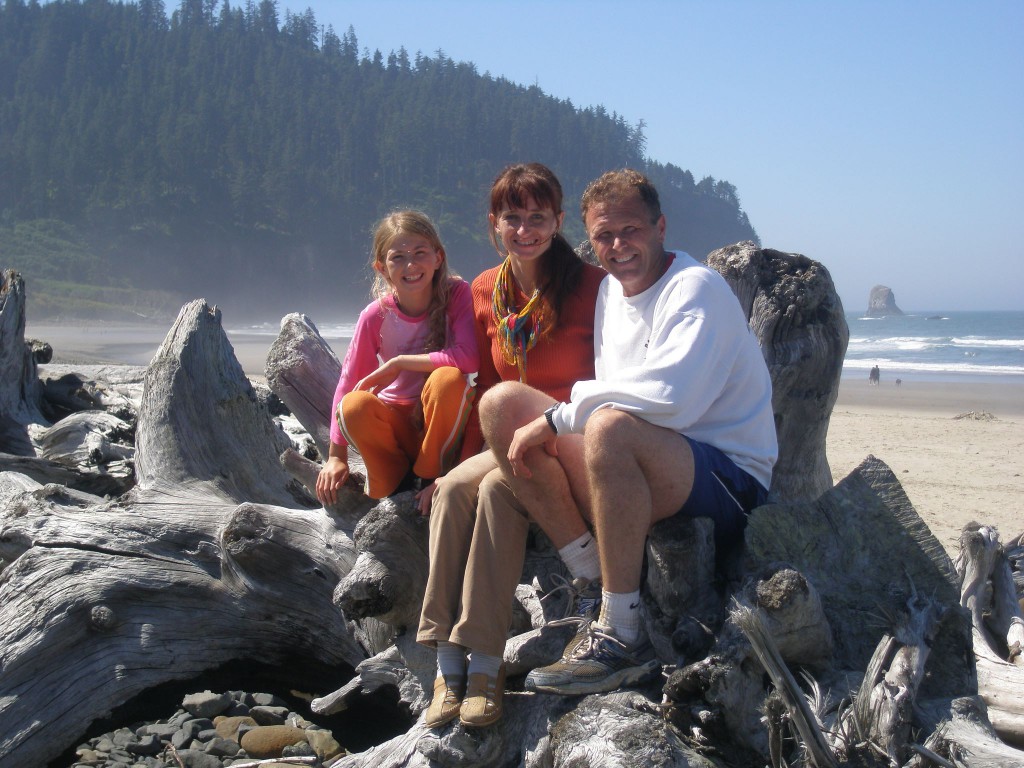
The Zweifel Family enjoys the nearby Oregon Coast, From left, daughter Nina, and Monika and Patrick Zweifel.
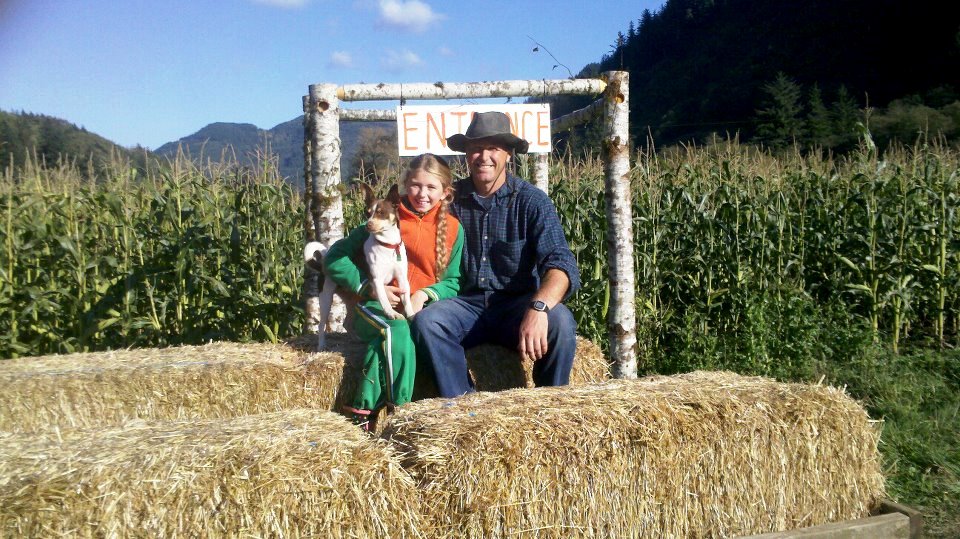
In the fall, there’s a pretty fun Pumpkin Patch and Corn Maze at Oregon Coastal. Here, Patrick poses with his daughter Nina.
Patrick Zweifel’s Oregon Coastal Flowers – his 64-acre, Tillamook, Oregon-based farm – has been well received by florists who shop at the Portland Flower Market, the Los Angeles Flower Market District and the Seattle Wholesale Growers Market where you can find permanent stalls filled with his gorgeous hydrangeas, calla lilies and Oregon forest products.
Patrick’s message is that if you can find your niche and be the very best in that niche, you *might* succeed. Being the best means producing excellent, high-quality botanical and floral elements. It also means the type of customer service you provide and the relationships you build with customers.
But no matter how beautiful or fresh the bloom, domestic farmers face competition on price, especially from importers who buy from low-wage countries, Patrick says. “I was the first person in the U.S. to sell colored calla lilies in a big way. I couldn’t have bought my farm without them. Then the South Americans started selling callas for 30-cents-per-stem against my $1-per-stem product. And they had added incentives, like buy one box, get a second one for free. I just can’t compete with South America on callas, even if my quality is great.” Patrick describes how cheap imports nearly ruined his core business – colored calla lilies. By 2008, he was faced with devastating losses of 85% of his total revenue and Patrick was driven to save his company.
He didn’t give up. He didn’t see that he had a choice. With a mortgage on his farm and family and employees to support, Patrick searched for a way to diversify Oregon Coastal Flowers.
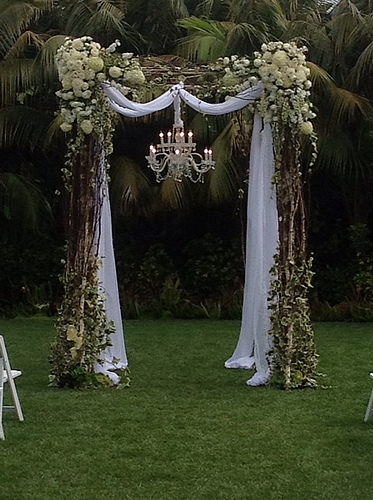
The romantic Alder arbors created at Oregon Coastal Farms from alder poles harvested on local forest land.
Hear the optimistic story of how he’s survived and moved beyond that episode to become even more solid in knowing his niche. This is a story of never giving up – and being smart and resourceful enough to find a solution that satisfies your customers, to provide products that meet a need in the floral marketplace, and to find new marketplaces for those products.
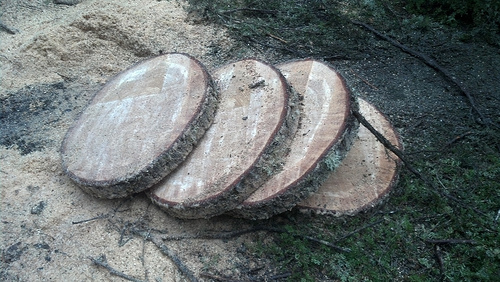
Here are those little log “cake plates” that Patrick has popularized among the floral, wedding & event world.
Patrick credits his ability to quickly change direction for saving his business. He noticed a few years ago that floral designers were snatching up his offerings of Northwest forest products, such as lichen-clad branches, soft green mosses, cone-laden conifer boughs and other woodland items, infusing their bouquets with a naturalistic feel. In the past three years, Oregon Coastal Flowers has increased the variety of specialty forest items, while at the same time shrinking its acreage devoted to calla lily production. With forest service permits that allow him to legally harvest everything from birch saplings to decaying tree trunks, Patrick has seen his sales double from 2010 to 2011.
Other ways to connect with Oregon Coastal Flowers:
Thank you for joining me in this episode of the SLOW FLOWERS Podcast with Debra Prinzing.
Because of your support as a listener, listeners have downloaded this podcast more than 5,000 times! I thank you for taking the time to join to my conversations with flower farmers, florists and other notable floral experts.
If you like what you hear, please consider logging onto Itunes and posting a listener review.
Until next week please join me in putting more American grown flowers on the table, one vase at a time.
The Slow Flowers Podcast is engineered and edited by Hannah Holtgeerts. Learn more about her work at hhcreates.net.









